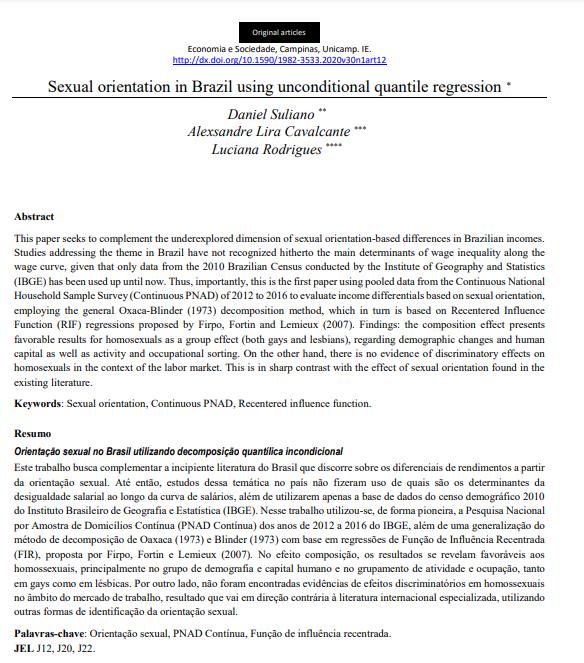Sexual orientation in Brazil using unconditional quantile regression
Licencia: Creative Commons (by)
Autor(es): Penna, Luciana Rodrigues
Daniel Suliano
Alexsandre Lira Cavalcante
This paper seeks to complement the underexplored dimension of sexual orientation-based differences in Brazilian incomes. Studies addressing the theme in Brazil have not recognized hitherto the main determinants of wage inequality along the wage curve, given that only data from the 2010 Brazilian Census conducted by the Institute of Geography and Statistics (IBGE) has been used up until now. Thus, importantly, this is the first paper using pooled data from the Continuous National Household Sample Survey (Continuous PNAD) of 2012 to 2016 to evaluate income differentials based on sexual orientation, employing the general Oxaca-Blinder (1973) decomposition method, which in turn is based on Recentered Influence Function (RIF) regressions proposed by Firpo, Fortin and Lemieux (2007). Findings: the composition effect presents favorable results for homosexuals as a group effect (both gays and lesbians), regarding demographic changes and human capital as well as activity and occupational sorting. On the other hand, there is no evidence of discriminatory effects on homosexuals in the context of the labor market. This is in sharp contrast with the effect of sexual orientation found in the existing literature.
Compartir:
Una vez que el usuario haya visto al menos un documento, este fragmento será visible.


